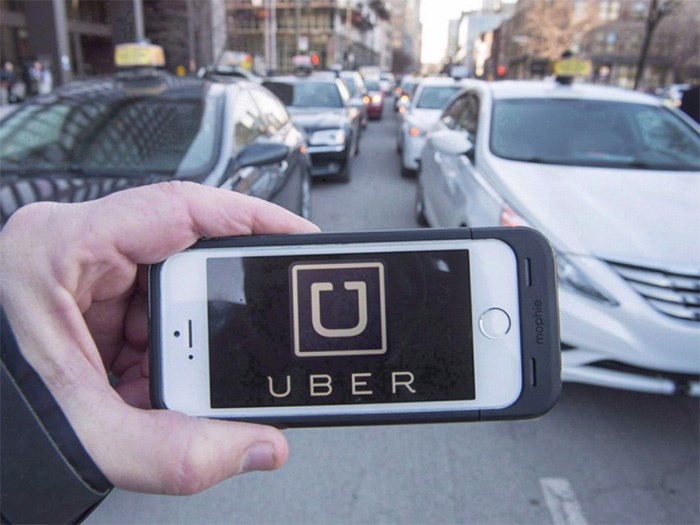Well, shame on us for wanting Uber and Lyft.
The BC NDP government has shown our demands to be unnecessary.
What were we thinking?
 Ryan Remiorz/The Canadian Press
Ryan Remiorz/The Canadian Press
The legislation unveiled Monday Nov. 19 to bring what the rest of North America has had for nearly a decade to quaint British Columbia depicts our taxi-seeking cities as those of calm, efficient service – a consumer apparition that merely needs tinkering with no particularly urgent disruption. If new players are to enter, well, make them work for it.
The message Monday was we need to wait and wait and wait to get what others have and have and have.
Like its proportional representation proposals, the ride-hailing plan leaves much to be defined in the months ahead. This is a government so intent on studying situations that it needs to start paying tuition.
The general aim of its miserly announcements Monday appears to be a protection of a business that other jurisdictions have found needless to coddle. Then again, other jurisdictions don’t see the taxi business as politically powerful in certain swing ridings that might – as the BC Liberals found – cost its government.
The hurdles announced in the new law resemble those in place for a track meet’s long-distance steeplechase. The province’s Passenger Transportation Board (PTB), with its leadership a creature of cabinet, will be a more politicized body invested with lots of authority to transform B.C. into what can only be described as a hybrid model of extra taxis and still-to-be-defined ride-hailing service.
It’ll set floor and ceiling prices, the service districts and the fees to make vehicles accessible to persons with disabilities, among much else. Drivers will need to be saints, not sinners, and pass medical exams, special training and road tests.
Will it lead to lower fares? Nothing suggested so Monday.
Will it lead to a raft of drivers to pursue side hustles to meet the rent? Sounds like an economic stretch.
Will it lead to ride sharing by Christmas 2019? If you believe so, then yes, Virginia, there is a Santa Claus.
Eight laws need amendments, and most important, a new form of per-kilometre insurance will need to be created by the Insurance Corp. of British Columbia (ICBC).
This. Will. Take. Time.
No one expects ICBC’s work, which ought to have started but clearly was not, to be done before next fall – that being, then, the earliest anyone can apply, far earlier than anyone being actually applied.
We may just beat autonomous vehicles to the road, but just.
On a first-examination basis, Monday’s proposals look as if incumbents got in a room and tried to devise the most extensive, expensive ways to keep a new entrant from a hardy piece of the pie.
Unlike the take-a-leap-of-faith PR referendum, it is political reassurance to the status quo, nicely couched in the more palatable concept of passenger safety. “Safety is my No. 1 concern,” said the provincial transport minister, Claire Trevena, and certainly Monday the taxi business would feel that.
Rather than free the market, it has coaxed into place lenience for the incumbent industry in the context of regulatory conservatism bound to make strenuous the competition most of us believed was pending.
Given that its predecessors were promising ride-hailing services for last winter, given that the government campaigned on bringing it forward then, too, given that ICBC has been aware of the need for a new form of insurance, the question that is rightfully begged: What has ICBC been doing?
Better still: What is the NDP doing?
The minister promised Monday an end to stranded partiers on Granville Street on a Saturday night looking to get home to Port Moody. But to do that, we will first need to freeze time. A lot of it.
Kirk LaPointe is editor-in-chief of Business in Vancouver and vice-president, editorial, of Glacier Media.


